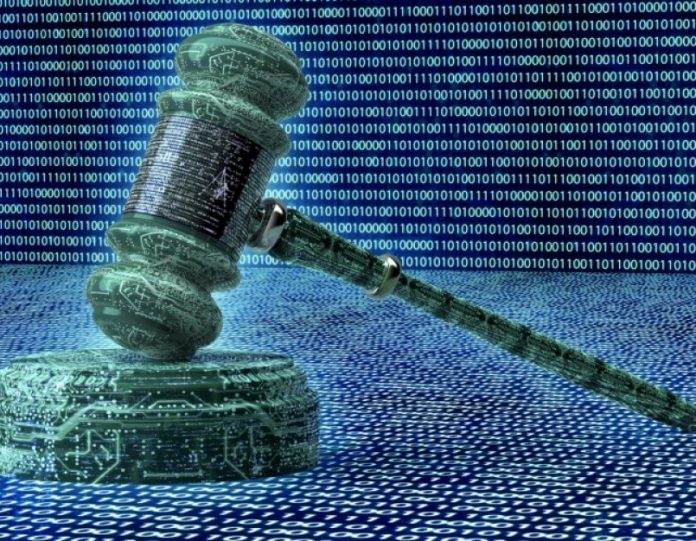This article is written by Chandrasmita Priyadarshini, studying BA LLB from Kiit School Of Law, Bhubaneshwar. This article discusses the laws that govern the internet and the challenges faced by such legislation.
Table of Contents
Introduction
Internet and the laws governing it include the legal principles and legislations that govern the usage of the internet in all forms. The laws that govern such a diversified area are called Cyber laws or Internet laws. We live in a tech-savvy era, where everybody is digitally advanced and equally dependent on the internet which increases the crime rate. Initially, the internet was used and developed as a research, information, and communication tool which wasn’t regulated; it later developed to have e-commerce, e-governance, and e-communication, etc. The legislation relating to the internet is dealt with under cyber laws. As the usage of the internet is increasing, along with it internet crimes are rising so there is a need for rigid legislation of the internet space. Internet crime or cybercrime is any illegal behavior committed by someone relating to a computer system or computer network through the internet with electronic operations that target the security and the data processed in them. Internet laws mean the legal principles or regulations used to govern the internet and all its forms. The internet and its laws are considered to be exceptional due to the complexity of the internet and all its potential activities relating to it, which demands to be flexible to cover various possibilities on the internet. Due to the global nature, these laws cannot be made completely bound by the legislations of any single geographical authority or country’s government.
Relationship between cyber laws and their efficiency
The first-ever international initiative on cyber laws and cybercrime was in Europe called the Council of Europe Conference on Criminological Aspects of Economic Crime in Strasbourg in 1976.
A staff study by the U.S, Senate Government Operations Committee in February 1977 in the USA was the very first comprehensive initiative on cybercrime. The staff in their study identified several problems related to computer programs and suggested that legislation should be formulated that would regulate any unauthorized use of computers. The Chairman of this Committee was Senator Abe Ribicoff. He later introduced the Ribicoff Bill, 1977 whose purpose was federal computer crime legislation in the U.S. that would specifically prohibit misuse of computers.
Later the first international organization was established which addressed computer crime and penal legislation at a conference in Paris in 1979. It emphasized computer frauds on the nature of computer crime which is international, because of the increase in communications over the internet, telephones, satellites, etc between the countries. Interpol being an international organization gives attention to this aspect. Interpol initiated a discussion to be approved by the General Assembly in 1980 relating to a questionnaire on computer crime which circulated to Interpol member countries. The first Interpol Training Seminar for Investigators of Computer Crime, was held in Paris.
The OECD Regulations in 1982 decided to appoint an expert committee in Paris to discuss cybercrime and the necessary changes required for penalizing such crimes. As per the recommendations from the ICCP-committee on the transnational aspect of cybercrime, there must be international cooperation in keeping a check and regulating cybercrime. All the member countries must consider the same and cover such crimes under national penal legislation regarding these principles. These statues must be explained in terms of functions rather than technology.
The Council of Europe, another expert committee, was constituted in 1985 to control cybercrime. This basically deals with a summary of guidelines for national legislations to establish liability for intentional offenses as given by the Council’s recommendation of 1989. It included a minimum list of computer fraud, computer forgery, damage to computer data or computer programs, computer sabotage, unauthorized access, unauthorized interception, unauthorized reproduction of a protected computer program, and unauthorized reproduction of a topography like a computer fraud.
Later in 1999, the U.S. President formed a working group in order to provide an initial analysis of legal and policy issues surrounding the use of the Internet to commit unlawful acts. The Working Group’s report was called The Electronic Frontier: The Challenge of Unlawful Conduct Involving the Use of the Internet and was published in March 2000.
Internet issues and their regulation
The current generation of the Information technology era, has led to the emergence of a dynamic and unique area, called cyberspace. The laws governing it are said to be specialized due to its features of borderless extent, rapid technological advances, anonymous nature, easier communication, transferring data, etc. This can be taken as a threat for the legislators of various countries who expect to utilize their existing laws for the application in the internet or cyberspace which can govern the virtual world. Also, the absence of a centralized agency for its regulation was a threat in itself.
One of the most important concerns is to determine jurisdiction when any cybercrime or internet crime is committed as determination of the place of occurrence of such crime is difficult and if the crime is committed in two or more places/countries or the effect of such crime is seen in more than one jurisdiction then it leads to confusion. This led to a conflict of laws between laws of two or more countries which made things difficult to deal with the internet and cyberspace. Other issues include concerns relating to privacy on the internet, protection of data and intellectual property contravention, child pornography, cyber terrorism. Various countries have incorporated laws to regulate these leading issues in cyberspace, but these laws faced serious enforcement problems due to the nature of cyberspace. Also, these laws were seen to have lacunae and choice of laws was a major issue. There was a need felt among the countries for combating cybercrimes on the internet which involves more than one jurisdiction hence, the conflict between laws of those sovereign nations. So the enforcement of cyber law in an effective manner would lead to effective enforcement of such laws from a global point of view. Various counties have had their own individual experience while framing and enforcing internet/cyber laws. From them, the US and the West in general were first in adopting their own legislation of their existing laws in regard to cyber laws and creating new laws as required on the internet. Later developing countries like India, Japan, Korea, the Philippines, Malaysia, Singapore, also enacted their cyber law legislation. But the issue still stays strong as the traditional law framing was not fruitful in the case of cyberspace which is similarly faced by other countries as well which remains unsolved. The borderless space, anonymity of users online, dynamic e-commerce, and rapid digital transmission pose a real challenge to the application of traditional laws in cyberspace.
How to address such issues on the internet globally
The basic approaches for the creation of cyber laws for ensuring enforcement and governance are:
- To formulate new laws and amend the existing laws by sovereign nations within their current territorial boundaries hence, to attempt to regulate all actions on the internet that can have any sort of impact on their population.
- Multilateral treaties or international agreements entered by sovereign nations to establish new and uniform rules targeting the conduct of internet users globally.
- Nations can create an international organization that will regulate and formulate new rules and enforces such rules to keep a check on cyberspace.
- There must be fixed rules and guidelines for identifying the person responsible for a certain offense in cyberspace by having domain name and IP address registrations, also identifying through websites and users who use it.
Reason for questioning efficiency of the existing cyber laws
Even after so many efforts, policies, regulations, and security screenings, people still commit offenses online. Various business and financial transactions happen online which is a prime area for cyber crimes despite many attempts to avoid such crimes it still keeps happening. Also, as mentioned above the laws vary from one sovereign nation to another so it makes the criminal escape and it is difficult on the part of regulators to convict the guilty.
Pointers for efficient enforcement of internet laws
Spreading awareness about the internet and its laws among the general public
People must know about their rights and duties while using the internet and its laws and regulations while using it. If people keep being ignorant like this then such cyber crimes and their laws will continue to happen. These credulous people become victims as they do not even know that their computer can be affected by the internet by viruses, trojans, malware and they won’t even report in case of such crimes due to their lack of knowledge.
Imparting training to enforcement officials regarding cyber laws
Primarily law enforcement officials are to be equipped with legal knowledge and the pertinent technical aspect to enforce cyber laws. These officials include the judges, police officers, and any other person dealing with cybercrime. Due to the evolution of technology, the internet, and computers, even experts, officials need to get regular training in the investigation and prosecution of highly complicated technology or cybercrime cases.
On the internet, the criminals take benefit of its anonymousness as it makes it difficult to trace the IP address of that criminal as they use proxy servers and other tech tools
For this adequate support for research and development must be given, manpower, and resources to develop technology that would help in detecting the IP address of such criminals with forensic science education.
Due to the lack of adequate provisions on the internet and cyberspace, this makes a task to combat cybercrime
This is faced all over the world so the sovereign nations must enable strict laws for the internet and also maintain logs and register for internet usage as per the internet service provider. Here the access to the user may or may not be given based on jurisdictional grounds of the internet service provider. This ISP of each jurisdiction must be secured on appropriate legal orders by the police. Tracing becomes difficult when no data is recorded of the user so the ISP or cybercafes must maintain records of who is using the internet and the time of usage so as the identity verification of the customers.
A proper institution must be constructed for reporting national crimes that affect the sovereign nationality and their citizen and in turn, safeguards the critical information infrastructure
The nations must recognize these and a strong team for such crimes is to be prepared, to safeguard the critical information infrastructure of a country. The statutory authority must be strengthened to recognize such crimes.
No universal cyberlaw across the world
Cyber laws and laws to protect internet crimes must be unified through multilateral treaties. This could solve the problem of jurisdictional confusion due to the involvement of multiple jurisdictions, hence determining which laws to be applied according to what jurisdiction.
Conclusion
Internet and cyberspace is a unique place that makes people’s life easier by online transactions like payments, bookings, tenders, facilitates business, etc. It also makes life convenient and gives access to information and knowledge to people all over the world. Effective legislation of internet laws requires an accomplished approach. These laws of the internet, cyber laws despite all the shortcomings still protect from cybercrimes. There’s a long way to go for completely effective legislation for internet laws. A well-organized law for cyber crimes and its efficient enforcement is the need of the hour. Things can be simplified if the people are aware of the internet and its technicalities, and train the law implementing officers, police, and forensic experts. Cyber laws make for a global initiative to match substantive and procedural aspects which plays an important role in removing drawbacks of the laws of the internet. The nations when participating in international organizations, institutions, law enforcement agencies need to create multilateral treaties or conventions to regulate the conduct of people on the internet, this also lays down laws to govern the internet. Interpol also contributes a lot to govern the internet for investigation and prosecution among various jurisdictions. These factors contribute to the effective enforcement of cyber laws.
References
- https://itlaw.wikia.org/wiki/The_Electronic_Frontier:_The_Challenge_of_Unlawful_Conduct_Involving_the_Use_of_the_Internet
- https://www.unodc.org/e4j/en/cybercrime/module-3/key-issues/the-role-of-cybercrime-law.html
LawSikho has created a telegram group for exchanging legal knowledge, referrals, and various opportunities. You can click on this link and join:
https://t.me/joinchat/J_0YrBa4IBSHdpuTfQO_sA
Follow us on Instagram and subscribe to our YouTube channel for more amazing legal content.
 Serato DJ Crack 2025Serato DJ PRO Crack
Serato DJ Crack 2025Serato DJ PRO Crack











 Allow notifications
Allow notifications


